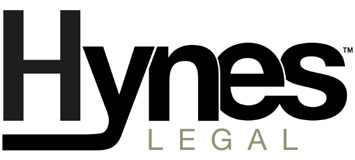Management rights and termites – and wearing more than one hat
We are quite often asked to advise on where a resident manager’s role starts and finishes. In recent times (for whatever reason), we seemed to have had quite a few management rights clients with termite issues.
Termite inspections and treatments can quite often become annual events. We see quite a few schemes where the body corporate offers the service to owners at the same time the common property is treated. This is where, as a resident manager, you need to remember what ‘hat’ you are wearing.
Your first ‘hat’ is that of a caretaking service contractor for the body corporate. This is under your caretaking agreement. That agreement will more than likely oblige you to obtain quotes from contractors to provide services to the body corporate, and then supervise the performance of those contractors. This is normal and something you should do.
Bearing in mind your Work Health and Safety obligations (our package is almost done), your role would extend to notifying people of the looming treatment of common areas and shutting off access to those areas while they were treated and the like.
Many bodies corporate offer owners the opportunity to have their units treated at the same time. This makes sense on a business front, as why not take advantage of a cost saving when the inspectors are already on site?
However, from a resident manager perspective, this is a different ‘hat.’ A caretaking contract will usually have nothing to do with services to individual owners.
Let’s take the example of Mrs Bloggs in unit 31. As an owner occupier, she decides she wants her unit treated and then decides to go shopping on the same day. She gives you the keys and says she will collect them from you when she comes back in the afternoon.
You are no doubt running around co-ordinating three inspectors at the one time and cannot physically be in three units at the one time to supervise the contractors. Anyway, the job gets done and the inspectors leave.
Mrs Bloggs comes home and finds her engagement ring and a watch missing from her bedside table. You don’t know which inspector did that unit. On top of that, she then gets sick from a reaction to the treatment.
Are you to blame? You shouldn’t be.
Where did your responsibility start and finish? You just did what you thought was right – you don’t have anything in writing about what you were and were not to do.
What does your caretaking agreement say about an indemnity from the body corporate for any claim by Mrs Bloggs? Nothing – because it doesn’t deal with you providing services to owners.
What happens next? You become embroiled in something that you didn’t have to, and you certainly have not been paid for.
This position is a little different when it relates to your services as a letting agent. If an owner for who you act wants to get their unit treated, then as letting agent, you should act on those owners’ instructions. This would mean that you would need to deal with the tenant to obtain their consent to the treatment, issue the appropriate access notices and ensure that the work was completed to the satisfaction of yourself as agent for the owner. It is best for the tenant to be there on the day to avoid the same issues with Mrs Bloggs.
This would ordinarily be an additional service to that provided by you as letting agent under your letting appointment. Whether you can charge for that service depends on the terms of your PAMD 20a.
Just bear this in mind the next time there is a joint service to both your body corporate and your lot owners.
Remember which hat you must wear and what responsibility you are taking on – and whether you will bear that responsibility for no remuneration.


